This article was co-authored by Chris M. Matsko, MD. Dr. Chris M. Matsko is a retired physician based in Pittsburgh, Pennsylvania. With over 25 years of medical research experience, Dr. Matsko was awarded the Pittsburgh Cornell University Leadership Award for Excellence. He holds a BS in Nutritional Science from Cornell University and an MD from the Temple University School of Medicine in 2007. Dr. Matsko earned a Research Writing Certification from the American Medical Writers Association (AMWA) in 2016 and a Medical Writing & Editing Certification from the University of Chicago in 2017.
There are 12 references cited in this article, which can be found at the bottom of the page.
This article has been viewed 121,137 times.
Kidney stones can be extremely painful. If you are dealing with pain caused by kidney stones, there are several things that you can try to help ease kidney stone pain. Make sure that you see a doctor for help treating your kidney stones because kidney stones may become worse without proper medical treatment. Your doctor may recommend some home remedies or prescribe a prescription pain reliever depending on the severity of your kidney stone pain.
Steps
Using Home Remedies
-
1Drink plenty of water. One of the most important things to do when passing a kidney stone is to drink lots of water. Your urine should look light yellow or clear. If it looks dark yellow or brown, then you are not drinking enough water.[1]
-
2Take an over-the-counter pain reliever. Over-the-counter pain relievers such as ibuprofen, aspirin, and acetaminophen are often recommended to help relieve pain caused by kidney stones.[4]
- If you can, try to take ibuprofen, which is preferred by doctors over other NSAIDS for relieving kidney stone pain.
- Check with your doctor if you are not sure about which type or how much you should take.
- Make sure that you read and follow the product instructions as well.
Advertisement -
3Juice some celery. Drinking a glass of fresh celery juice may help because celery has antispasmodic properties. That means that celery juice can help to relieve any pain that is caused by spasms in the tissues in and around your kidneys.[5]
- If you have a juicer, then you can make your own fresh celery juice with a few stalks of celery.
- If you do not have a juicer, then try to find a local juice bar and ask them to make you a cup of celery juice.
- Eat some celery seed, too. Celery seed is a good tonic and urine promoter.
-
4Sip on some green tea. Green tea may help to treat kidney stone pain and it has also been shown to play a role in preventing kidney stones.[6] Drink two to four cups of green tea per day. You can drink regular or decaffeinated green tea.
- To make a cup of green tea, place 1 teaspoon of dried tea leaves into a tea infuser or teabag, place the tea in a mug, and then pour a cup of boiling water over the tea. Let the tea steep for about 5-10 minutes, then remove the infuser or teabag.
-
5Look into homeopathic remedies. There are some homeopathic medicines that may help to ease pain caused by kidney stones. These remedies are often available in health food stores and well-stocked grocery stores. You can take three to five pellets of one of these remedies labeled 12X to 30C.[7] Repeat the dosage once every one to four hours. Some homeopathic remedies to try include:
- Berberis. Try this remedy for pain that is mainly in your groin area.
- Colocynthis. Try this remedy for pain that eases up when you lean or bend forward.
- Ocimum. Try this remedy for pain that is accompanied by nausea and/or vomiting.
-
6Try Phyllanthus niruri. Phyllanthus niruri is a plant that may help to treat kidney stones and relieve kidney stone pain as well. Phyllanthus niruri works by relaxing the ureters, which makes it easier to pass kidney stones. This plant may also help the kidneys to excrete kidney stone forming substances such as calcium.[8]
- Realize that there is no good evidence supporting the effectiveness of homeopathic remedies.[9]
Seeking Medical Attention
-
1Call your if you have serious or severe symptoms. In some situations, home remedies may not be enough to treat your kidney stone pain. In these situations, you will need to call your doctor right away. If you go to the emergency room, they will run urine tests and send you for an abdominal ultrasound or CT to determine if you have kidney stones. Call your doctor if you experience:[10]
- severe pain around your abdomen, sides, groin, or genitals
- bloody urine
- a burning sensation when you urinate
- nausea and/or vomiting
- fever and chills
- flank pain that radiates to your groin
-
2Ask about prescription pain medications. If home remedies do not provide enough pain relief, then you may want to ask your doctor about proscription pain relievers to help you cope with the pain of passing a kidney stone. Even if you are already on a prescription pain reliever, if you are still in pain, then let your doctor know. You may need a higher dosage or a more powerful medication.[11]
-
3Save the stone if you pass it. If you pass the kidney stone while you are at home, then you should save it and bring it to your doctor for analysis. Having your kidney stone analyzed will enable your doctor to determine what type of kidney stone it was and make recommendations about how to prevent another kidney stone in the future. [12] There are many types of kidney stones, including calcium stones, uric acid stones, struvite stones, a cystine stones.[13]
Warnings
- See a doctor as soon as possible if you think you may have kidney stones. Without proper treatment, you kidney stones may progress and you may end up needing surgery to treat them.⧼thumbs_response⧽
References
- ↑ http://www.nhs.uk/Conditions/Kidney-stones/Pages/Treatment.aspx
- ↑ https://medlineplus.gov/ency/patientinstructions/000135.htm
- ↑ https://health.clevelandclinic.org/can-cranberry-juice-stop-uti/
- ↑ https://www.health.harvard.edu/blog/5-things-can-help-take-pass-kidney-stones-2018030813363
- ↑ https://www.ncbi.nlm.nih.gov/pmc/articles/PMC7020841/
- ↑ https://www.kidneyfund.org/kidney-today/top-5-healthy-drinks-for-people-with-kidney-disease.html
- ↑ https://www.mountsinai.org/health-library/condition/kidney-stones
- ↑ https://www.ncbi.nlm.nih.gov/pmc/articles/PMC6092661/
- ↑ https://www.stlukes-stl.com/health-content/medicine/33/000170.htm
About This Article
The best way to help ease some of the pain that comes with kidney stones is to take an over-the-counter pain reliever and drink plenty of water. If you can, try to take Motrin, since it is preferred by doctors over other pain relievers for kidney stones. Also, keep an eye on your urine color to know if you’re drinking enough water, as it should be light yellow and clear instead of dark yellow or brown. Another way you can help yourself get some relief is by drinking a glass of fresh celery juice, which has antispasmodic properties that can relieve the pain caused by spasms from around your kidneys. If your pain becomes severe, see a doctor right away to test for kidney stones, for which you’ll need prescription medication to ease the pain. For more help from our Medical co-author, like how to treat kidney stone pain using homeopathic remedies, scroll down.
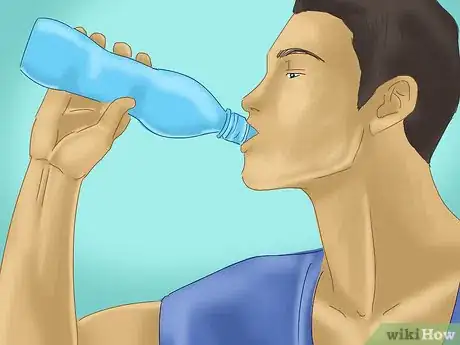
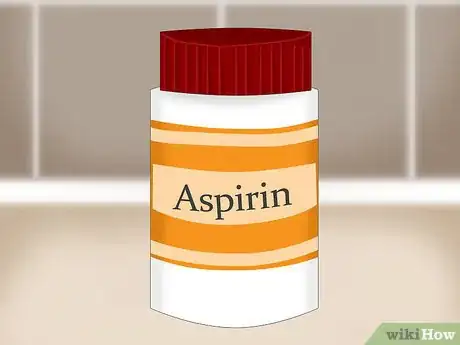
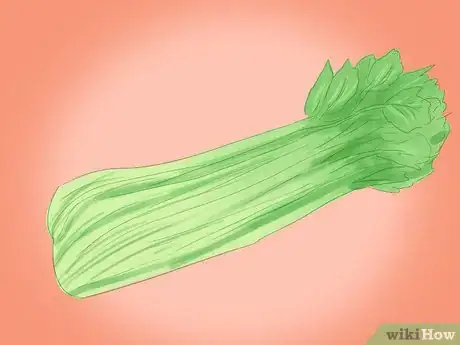
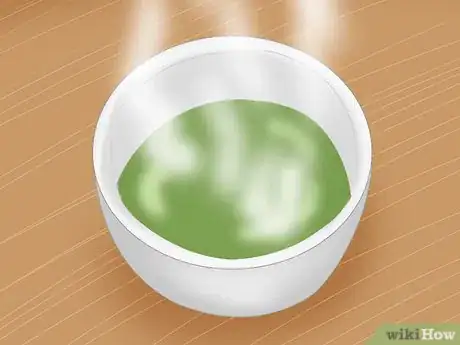
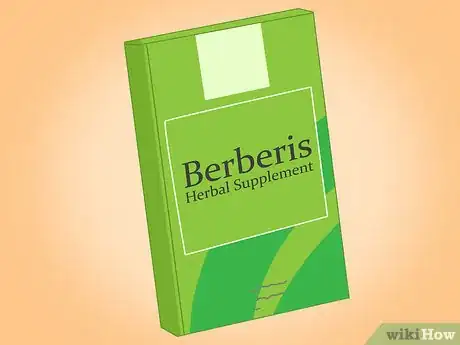
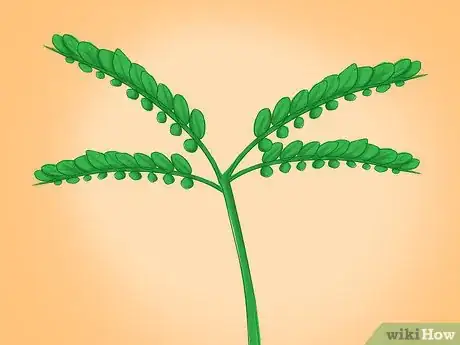
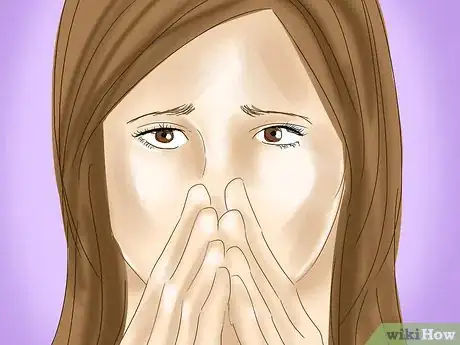
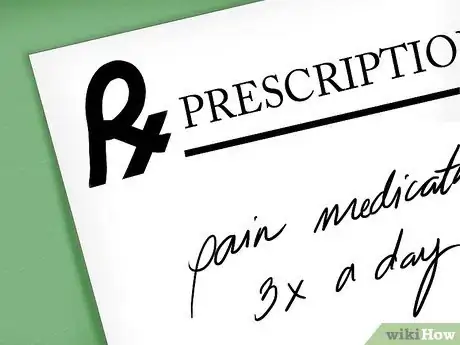
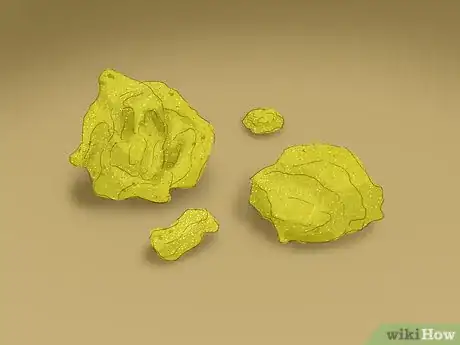
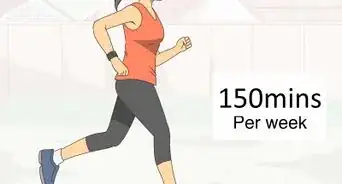

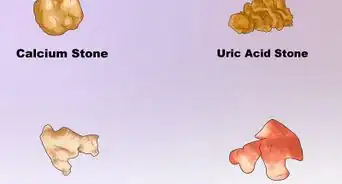


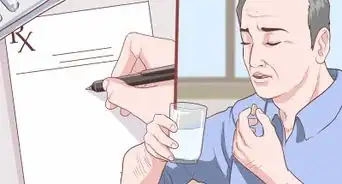

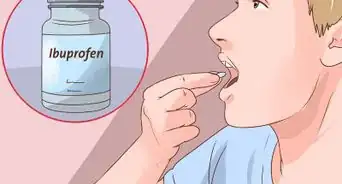










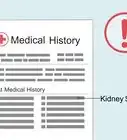
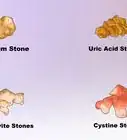




































Medical Disclaimer
The content of this article is not intended to be a substitute for professional medical advice, examination, diagnosis, or treatment. You should always contact your doctor or other qualified healthcare professional before starting, changing, or stopping any kind of health treatment.
Read More...